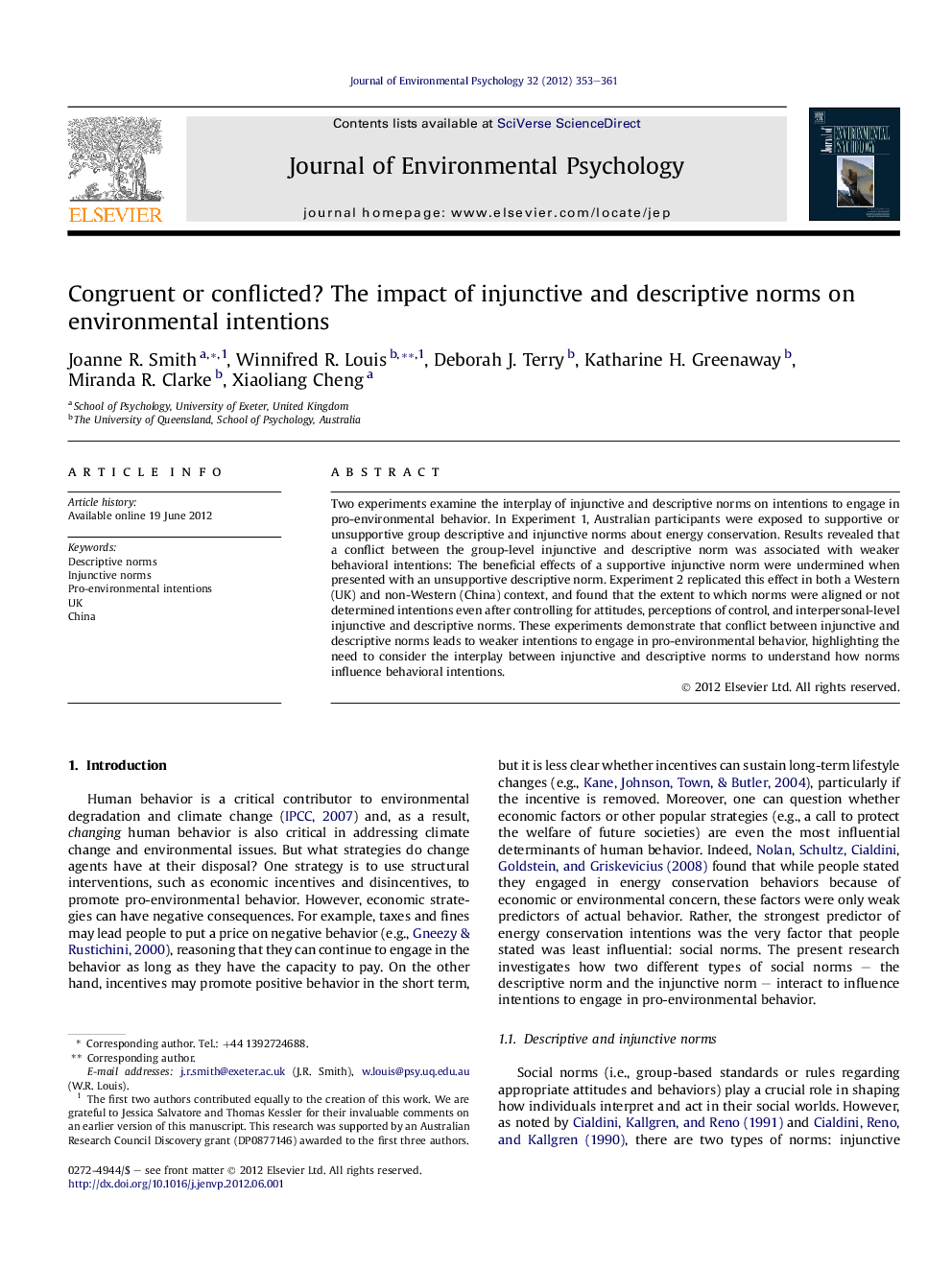| Article ID | Journal | Published Year | Pages | File Type |
|---|---|---|---|---|
| 885625 | Journal of Environmental Psychology | 2012 | 9 Pages |
Two experiments examine the interplay of injunctive and descriptive norms on intentions to engage in pro-environmental behavior. In Experiment 1, Australian participants were exposed to supportive or unsupportive group descriptive and injunctive norms about energy conservation. Results revealed that a conflict between the group-level injunctive and descriptive norm was associated with weaker behavioral intentions: The beneficial effects of a supportive injunctive norm were undermined when presented with an unsupportive descriptive norm. Experiment 2 replicated this effect in both a Western (UK) and non-Western (China) context, and found that the extent to which norms were aligned or not determined intentions even after controlling for attitudes, perceptions of control, and interpersonal-level injunctive and descriptive norms. These experiments demonstrate that conflict between injunctive and descriptive norms leads to weaker intentions to engage in pro-environmental behavior, highlighting the need to consider the interplay between injunctive and descriptive norms to understand how norms influence behavioral intentions.
► Two experiments examine the interplay of injunctive and descriptive norms. ► Conflict between the injunctive and descriptive norm produces weaker intentions. ► This is true in individualist (Australia; UK) and collectivist (China) cultures.
